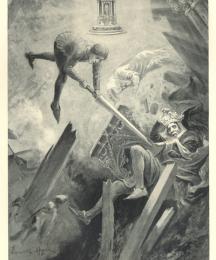The story of Balin is recounted in the Old French Suite du Merlin and in Malory's Morte d'Arthur. Balin and Balan are the tragic brothers who, despite their nobility, wind up killing each other. Balin in particular seems cursed by fate. For example, when he offers protection to a knight, he is unable to foresee--or even see--the danger that kills that knight, the treacherous Garlon who rides invisible. When he attempts to avenge the death, he does so in the castle of King Garlon and winds up defending himself and wounding the lord of the castle, King Pellam, with the sacred spear that pierced the side of Christ. Though the action was performed blindly and in self-defense, the blow is the Dolorous Stroke, which lays the land waste and produces a wound that can only be healed when the Grail is achieved. Balin's misfortune lasts to his final act, combat with his brother, whom he doesn't recognize. In the battle, both are fatally wounded. Ironically, this battle was fated from the first appearance of Balin in Malory's version of the story, when he proves himself to be "a passynge good man" by removing a sword that a lady has been forced to wear and thus, because he wins a second sword becoming known as The Knight with Two Swords. After achieving this test of virtue, he decides to keep the sword even after being warned that if he does so he will slay the man he loves most in the world and bring about his own destruction. Unwilling to believe this prophecy, he keeps the sword and seals the doom of his brother and himself. Tennyson makes Balin an important figure in developing some of the major themes in The Idylls of the King. His Balin is known as "the Savage" (Malory called him "Balin Le Savage") and figures in the struggle of Arthur to destroy ...
Read More
Read More
Bridges, Sallie (1830 - 1910)
Heber, Reginald (1783 - 1826)
Rhys, Ernest (1859 - 1946)
The Battle of the Two Knights: Or the Lay of the Peron-Stone, and the Refrain of the Dead Lady, Columbe, Who Loved the King of Ireland's Son - 1905 (Author)
Swinburne, Algernon Charles (1837 - 1909)
Ian Brown (b. 1962)
William Ernest Chapman (1858 - 1947)
Sir W. Russell Flint (1880 - 1969)
H. J. Ford (1860 - 1941)
F. A. Fraser (1846 - 1924)
Alfred Kappes (1850 - 1894)
W. H. Margetson (1861 - 1940)
Lancelot Speed (1860 - 1931)
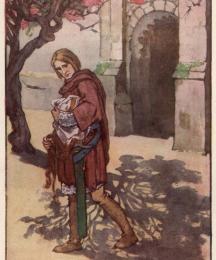
Ian Brown (b. 1962)
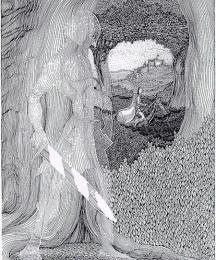
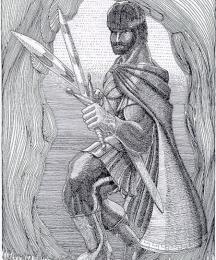
William Ernest Chapman (1858 - 1947)
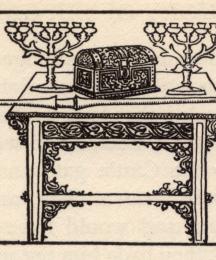
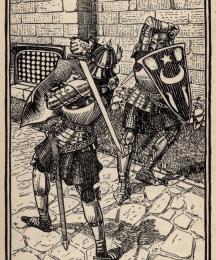
Sir W. Russell Flint (1880 - 1969)
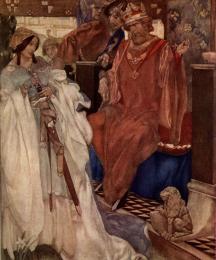
H. J. Ford (1860 - 1941)
F. A. Fraser (1846 - 1924)
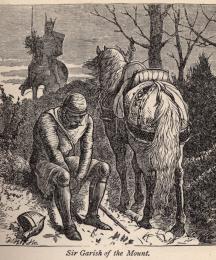
Alfred Kappes (1850 - 1894)
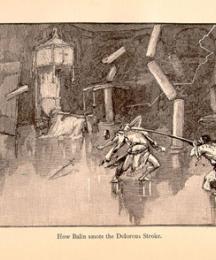
W. H. Margetson (1861 - 1940)
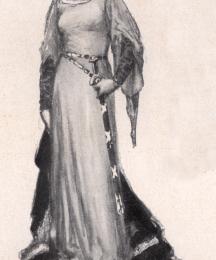
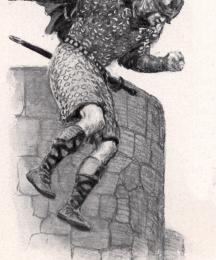
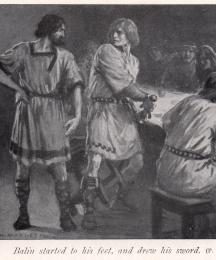
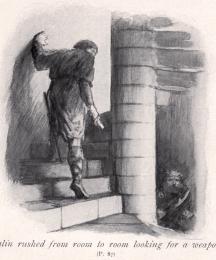
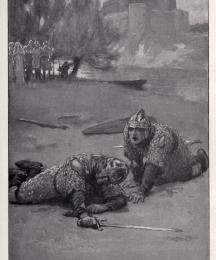
Lancelot Speed (1860 - 1931)
